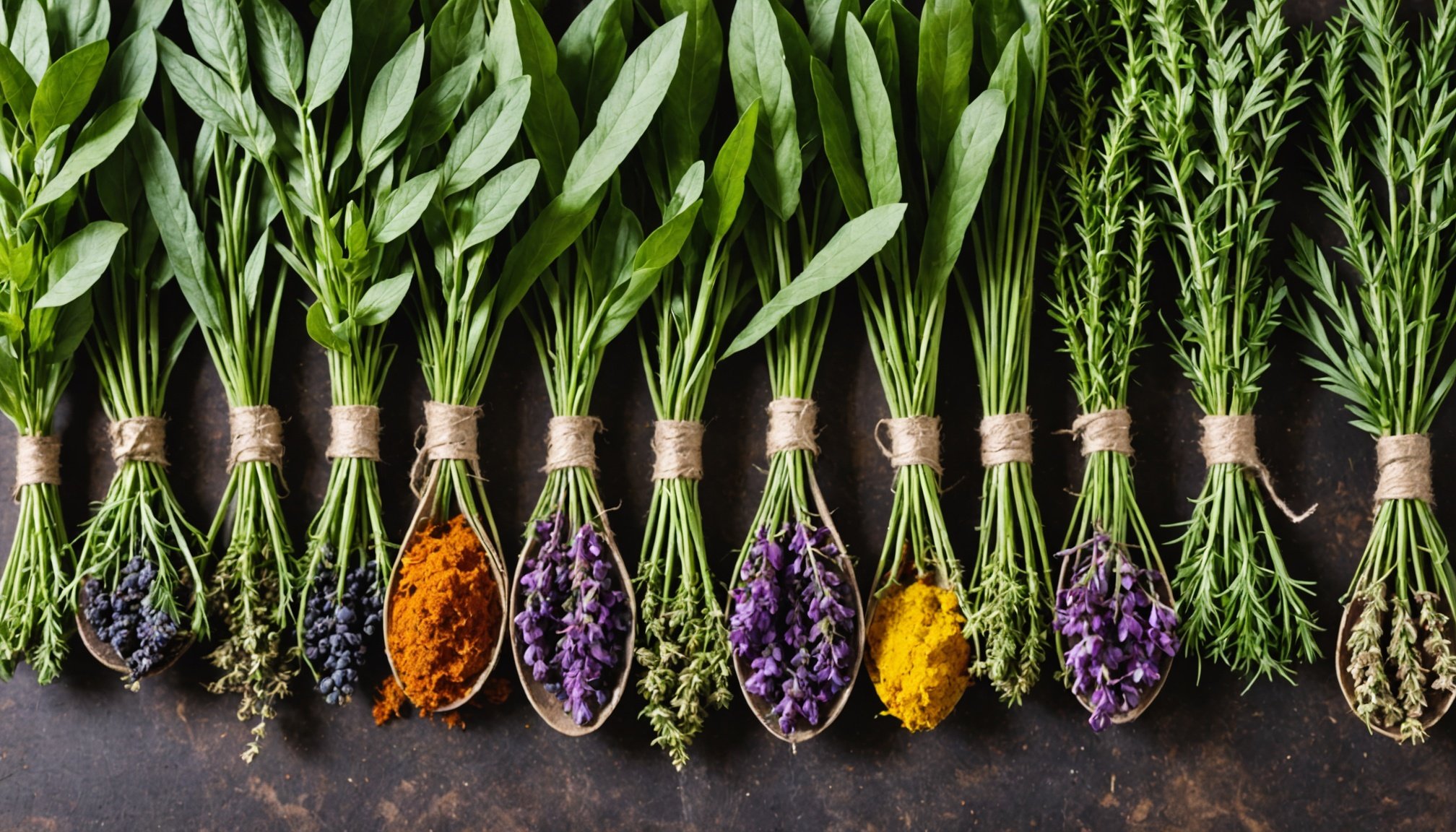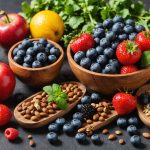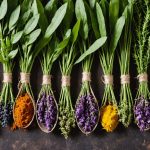Overview of Immunity and Herbal Remedies
The immune system is vital to maintaining overall health, acting as the body’s defence against infections and diseases. It comprises a complex network of cells, tissues, and organs that work synergistically to identify and neutralise harmful pathogens. Understanding this system is crucial for adopting practices that support immune health.
Herbal remedies have long been heralded for their role in complementing traditional medicine, offering a natural approach to boosting immunity. These remedies, derived from plants, provide a rich source of nutrients and compounds that can enhance immune response. They often work by reducing inflammation, providing antioxidants, and stimulating white blood cell production, thus supporting the body’s natural defence mechanisms.
Also to read : Boost Your Omega-3 Intake: Simple Tips for Enhancing the UK Diet
Historically, herbs have been integral to medicine, with cultures across the globe utilising them to ward off illnesses. For instance, Echinacea has been used by Native Americans for centuries as a remedy for infections, while Turmeric, rich in curcumin, is celebrated in Ayurveda and Traditional Chinese Medicine for its anti-inflammatory properties.
Exploring the health benefits of herbal remedies can empower individuals to make informed decisions about their health, combining the best of natural and scientific approaches for optimal immune support.
Topic to read : Boost Your Health: A Guide to Adding Antioxidant-Packed Foods to Your UK Diet
Top UK Herbs for Immune Support
Discovering the myriad benefits of local superfoods can significantly enhance your health journey. Using UK herbs for immune support is both practical and empowering.
Elderberry
Elderberry is renowned for its immune-boosting properties. Scientific studies have demonstrated its efficacy in reducing the duration of cold and flu symptoms. Rich in antioxidants, elderberry supports robust immune function. It is commonly consumed as a syrup or in teas for its potent benefits. Incorporating elderberry into your routine can provide natural and effective immune support.
Nettle
Nettle boasts a rich nutritional profile, including vitamins A, C, and K. This herb is an exceptional addition for health-conscious individuals. It complements salads, soups, or can be brewed as tea. Sourcing nettle locally not only supports sustainability but also ensures freshness and potency.
Garlic
Garlic’s natural antimicrobial qualities make it a powerhouse for immunity. Incorporate its raw or cooked forms in dishes to harness these benefits. Recent research has highlighted its role in reducing the risk of infections. Adding garlic to pasta, soups, or even as a spread can amplify your immune support strategy.
Incorporating Herbs into Your Diet
Embracing a herbal lifestyle can be both rewarding and straightforward with a few imaginative tweaks to your daily meals. Consider using herbs like basil, rosemary, and thyme to enhance the flavour of everyday dishes such as pasta, rice, or grilled meats. Incorporating these herbs can elevate not just taste but also the nutritional value of your meals, introducing immunity boosting recipes into your routine naturally.
When preparing meals, deciding between fresh and dried herbs can be crucial. Fresh herbs typically pack a more potent flavour and are ideal for garnishing or in dishes with minimal cooking time. On the other hand, dried herbs are perfect for slow-cooked dishes where they have time to rehydrate and infuse their essence. Both versions have their places in a well-rounded herbal lifestyle.
To further explore herbs, try making herbal infusions and teas. Start by steeping fresh or dried herbs in boiling water. Popular choices include mint, chamomile, and lavender. These beverages can be enjoyed hot or cold and are simple-to-prepare additions to immunity boosting recipes. Remember, exploring herbs can transform your meals while supporting overall health.
Local Sourcing and Sustainability
When it comes to sourcing herbs, local herbs present several environmental benefits. Purchasing from nearby growers reduces transportation emissions, making it a more eco-friendly choice compared to imported alternatives. It also supports local economies and encourages community resilience.
For those interested in foraging, adopting sustainable practices is crucial. This involves only collecting what you need and ensuring the plant population can regenerate. For example, when harvesting wild herbs like nettles or dandelions, it’s recommended to take just a small portion from larger clusters. This method helps maintain biodiversity and prevents over-harvesting.
To get the best of local herbs, consider engaging with local markets and herbalists. Farmers’ markets are excellent places to find seasonal herb selections and gain insider foraging tips. Local herbalists can also provide insights into herb identification and sustainable usage, enhancing your knowledge and appreciation for these plants.
By focusing on local herbs and employing sustainable practices, you can enjoy a more environmentally conscious approach to herb consumption. Engaging with local markets not only provides fresh produce but also creates strong community bonds through shared knowledge and resources.
Scientific Evidence and Research
Recent herbal research exploring the effects on immune health has garnered substantial attention. Various immune health studies highlight herbs like echinacea, ginseng, and elderberry. Each seemed to offer an immunity boost. These herbs are commonly touted for their ability to support the immune system’s natural functions, with diverse findings discussed in several influential clinical evidence reviews.
When assessing the quality of this herbal research, several factors are critical. Rigorous methodology, sample size, and reproducibility are essential components. Unfortunately, some studies lack robustness, leading to varied results and interpretations. It is crucial for research to minimise bias and ensure that findings can be replicated for practical application.
Looking towards future directions, there is growing interest in integrating clinical evidence with genetic and molecular biology studies. Scientists are increasingly exploring how specific herbal compounds may interact with immune cells at a cellular level. As technology advances, there is hope for more precise and personalised approaches in herbal immune health studies. This new frontier could define how we utilise herbs for immune support, but requires extensive, high-quality research to substantiate claims and ensure safety and efficacy.
Practical Tips for Enhancing Immunity with Herbs
Optimising your immune system boost requires a thoughtful blend of lifestyle choices and herbal remedies. Prioritising your overall wellness is crucial, as it lays the foundation for effective herbal use. Integrating regular exercise, balanced nutrition, and adequate sleep into your routine enhances the body’s natural defences. This harmony of lifestyle and herbal care is vital for maintaining optimal health.
Recognising the early signs of immunity issues enables timely intervention. Symptoms such as frequent colds, infections, and fatigue indicate a weakened immune response. Addressing these signals promptly with health tips and herbal supplements may prevent more serious health concerns.
It’s imperative to know when to seek the expertise of healthcare professionals. If herbal remedies don’t alleviate symptoms, or if conditions persist, consult a medical practitioner. This ensures that your approach to boosting immunity is both effective and safe. Also, certain conditions or medications may interact negatively with some herbs, underscoring the importance of professional guidance.
Implementing these health tips, coupled with informed lifestyle choices, creates a robust defence system. This approach empowers individuals to cultivate a lifestyle that supports a healthier immune function.











